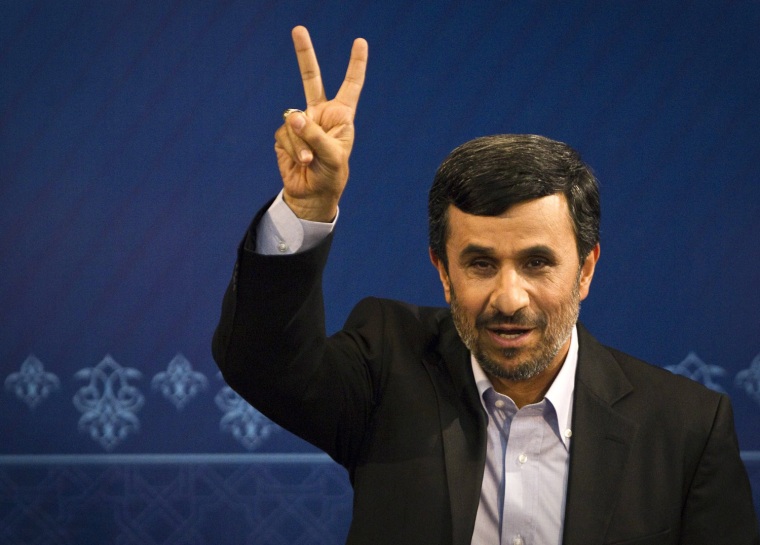No offer from world powers can persuade Iran to stop enriching uranium, President Mahmoud Ahmadinejad said on Tuesday, dismissing the key demand of countries that fear Tehran is developing nuclear weapons.
A day after the U.N. atomic watchdog said it had new evidence of possible military dimensions to Iran's nuclear work, Ahmadinejad accused it of doing Washington's bidding and said Tehran's atomic advances had "no brake and no reverse gear".
The head of the International Atomic Energy Agency, Yukiya Amano, said on Monday the IAEA had received "further information ... that seems to point to the existence of possible military dimensions to Iran's nuclear program".
That contradicts Iran's insistence that its nuclear work is for entirely peaceful purposes, and Ahmadinejad made clear his displeasure with the Japanese IAEA chief who has taken a blunter approach than his Egyptian predecessor Mohamed ElBaradei.
"With America's orders (the IAEA) has written some things in a report that are against the law and against the agency's regulations," Ahmadinejad told reporters.
"These have no legal value and aside from harming the agency's reputation it will have no other effect."
Tehran says sanctions imposed by Washington, Europe and the United Nations are not hitting its economy and insists they will not force it to give up what it considers its sovereign right to enrich uranium, a process that can make fuel for power plants or, by enriching uranium more highly, provide bomb material.
No 'reverse gear'
"I have said before that Iran's nuclear train has no brake and no reverse gear ... We will continue our path," Ahmadinejad said, adding that Iran would continue to cooperate with the IAEA "as long as they move based on justice".
Asked whether world powers could offer any incentive to stop Iran's enrichment, he answered with the one word: "No".
Two rounds of talks between Iran and the five permanent members of the U.N. Security Council, the United States, Russia, China, Britain and France, plus Germany (P5+1), in Geneva in December and in Istanbul in January, did not reach any substantive result.
President Barack Obama said the United States and its allies would consider adding to the sanctions already imposed on Iran.
"We agreed that if the International Atomic Energy Agency this week determines again that Iran is continuing to ignore its international obligations, then we will have no choice but to consider additional steps, including potentially additional sanctions, to intensify the pressure on the Iranian regime," Obama told a news conference in Washington.
Iran has said it is willing to resume talks, but its insistence that other countries recognize its right to enrich uranium is a major stumbling block, particularly for Western diplomats who see it as an unacceptable pre-condition.
The EU foreign policy chief, Catherine Ashton, who represented the P5+1 at the talks, said last month she wanted a "stronger and better" reply from Iran to her call to revive the talks.
Israel and the United States say they do not rule out pre-emptive military strikes to stop Iran making nuclear bombs.
